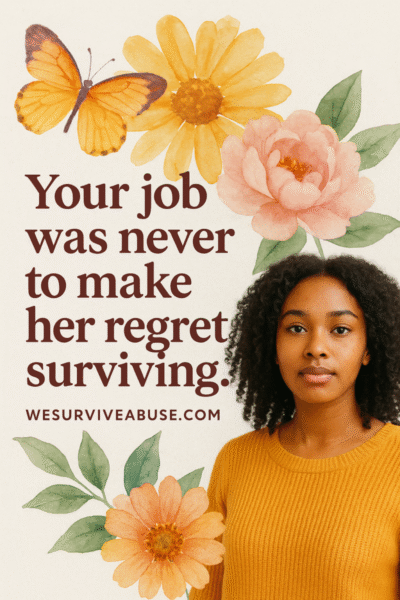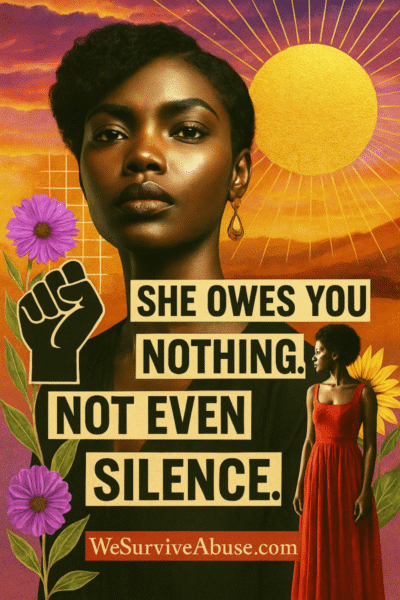Too often, when men like Sean “Diddy” Combs are accused of violence, public conversation zeroes in on his romantic partners—on their choices, their

Too often, when men like Sean “Diddy” Combs are accused of violence, public conversation zeroes in on his romantic partners—on their choices, their silence, their timing. But this is not just a relationship problem. This is a violence problem. And violence does not respect relationship titles. From editors and clubgoers to alleged victims who were strangers to him, the harm trails beyond intimacy.
Still, some prefer to advise women not to date “men like him,” instead of addressing the real danger: that powerful, protected men are harming people in plain sight—and our society keeps elevating them anyway. Safety will never come from shame. It comes from accountability, systemic change, and honoring all who were harmed, not just those who loved him.
🔍 Broader Implications and Societal Responsibility
The pattern of alleged misconduct by Combs underscores a systemic issue where powerful individuals can perpetrate harm across various contexts, not limited to intimate relationships. This challenges the notion that avoiding personal relationships with such individuals is sufficient for safety.
1997 – Danyel Smith, Former Vibe Editor-in-Chief
Danyel Smith alleges that during her tenure at Vibe magazine, Combs threatened her life over a cover story dispute. She claims he told her she’d end up “dead in the trunk of a car” after she refused to grant him editorial control over the magazine’s cover. Smith later received a faxed apology from Combs after involving legal counsel. TheWrap+7People.com+7Yahoo+7
1999 – Natania Reuben, Club Shooting Victim
During a nightclub incident involving Combs and rapper Shyne, Natania Reuben was shot in the face. She has publicly stated that she witnessed Combs firing the weapon, contradicting earlier narratives that placed sole blame on Shyne. People.com+9YouTube+9theJasmineBRAND+9theJasmineBRAND+1NBC+1
2006 – LaTroya Grayson, Alleged Assault Survivor
LaTroya Grayson filed a lawsuit claiming she was drugged, sexually assaulted, and robbed at a party hosted by Combs. She reported waking up in a hospital with no memory of the events and discovered her belongings were missing. Page Six
Numerous allegations of abuse by employees….
(I’m choosing to leave the list right here for now, but there are alleged to be more victims.)
 Violence Against Women is a “WE” Problem
Violence Against Women is a “WE” Problem
Telling women to “just don’t date him” is not prevention—it’s avoidance disguised as advice. It’s thin. It’s hollow. And it ignores the core issue: violent men harm people because they are violent, not because someone chose to love them. People—women, children, bystanders—are injured or murdered every day, not because of their relationship choices, but because we as a society have failed to intervene, to invest, to prevent.
We do not have enough mental health support. We do not have enough early intervention. We do not invest in the safety of our communities. And when women create safe spaces to protect each other, they’re mocked or invaded. Violence thrives in a culture that calls protection “paranoia” and blames victims for not predicting the unpredictable.
Prevention means taking the threat of male violence seriously—before it steals another life, another dream, another voice.
We’re Not Just Telling the Truth—We’re Changing What’s Normal
We will not be gaslit into thinking this is just about one man. Or one relationship. Or one headline.
This is about the climate. The culture. The silence that has allowed far too many people—not just intimate partners, but editors, artists, bystanders, and young women in nightclubs—to be harmed without consequence.
And still, some people look at the survivors and say: Why were you there? Why didn’t you leave?
As if the real question isn’t: Why are we still elevating people who harm others? Why are we still giving them more stages, more shows, access to more spaces, more opportunities to silence?
We cannot heal what we refuse to name.
We cannot protect people if we’re more concerned with a man’s reputation and comfort than a woman’s recovery.
If we truly want to live in a safer world, we must build it—on truth, on courage, and on care.
 Affirmations for Our Collective Healing & Growth
Affirmations for Our Collective Healing & Growth
💜 We will not trade truth for comfort, silence for peace, or power for protection.
💜 We are brave enough to question what our culture calls “normal.”
💜 We refuse to shame Survivors for surviving.
💜 We commit to helping Survivors heal for as long as it takes.
💜 We will not grow numb to cruelty, no matter how famous the face.
💜 We are the generation that will interrupt cycles of harm.
💜 We are willing to grow beyond blame into bold action.
💜 We reject the idea that harm only matters if it happens to someone we love.
💜 We are building a world where violence is not protected and healing is not rushed.
We Survive Abuse is more than a name.
It is a truth. A testimony.
And a call to build a world where survival isn’t the ceiling—it’s the floor.
Let’s rise higher. Together.
 Affirmations for Our Collective Healing & Growth
Affirmations for Our Collective Healing & Growth